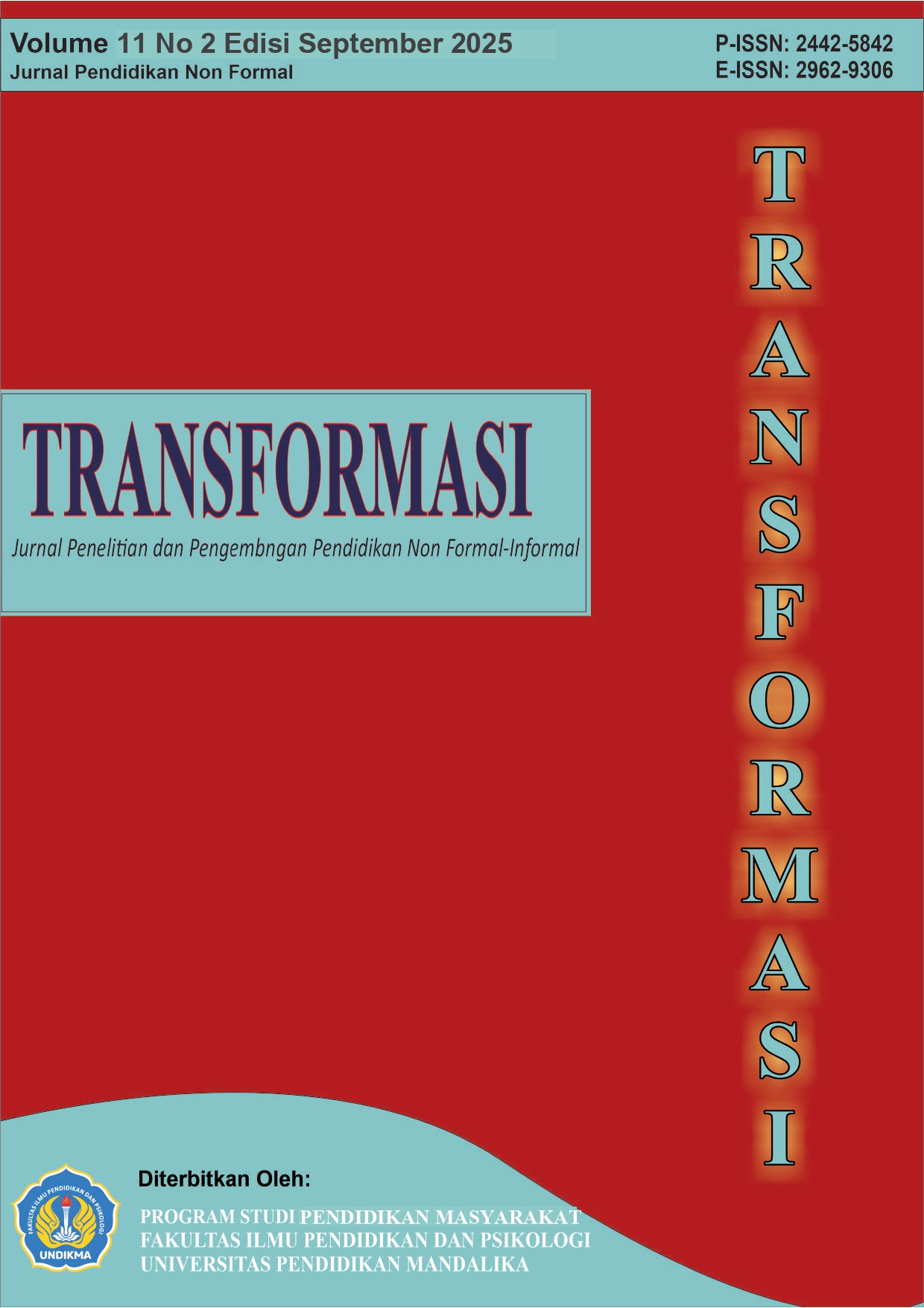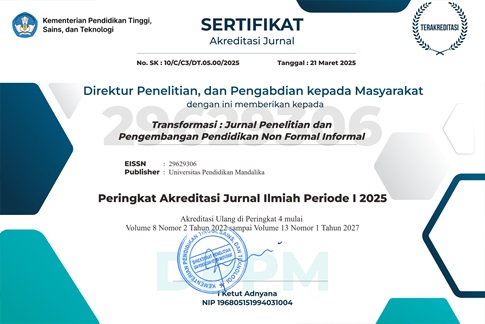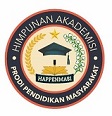Upaya Pendidikan Nonformal Dalam Mengatasi Pengaruh Media Sosial di Kalangan Remaja
DOI:
https://doi.org/10.33394/jtni.v11i2.17440Keywords:
Non-Formal Education, Social Media, Social Anxiety, Stress Management, Mental Well-Being., Pendidikan Nonformal, Media Sosial, Kecemasan Sosial, Pengelolaan Stres, Kesejahteraan Mental.Abstract
Abstract: This study aims to evaluate the impact of non-formal education in addressing the influence of social media on the social behavior and mental well-being of adolescents. The research method employed a quantitative approach using surveys and interviews involving two groups of respondents: adolescents who participated in non-formal education programs and those who did not. The findings reveal that participation in non-formal education significantly correlates with a reduction in time spent on social media, decreased social anxiety, and improved stress and emotion management skills. Adolescents who participated in non-formal education reported feeling more confident and better able to manage the negative influences of social media. In conclusion, non-formal education has a significant positive impact on helping adolescents manage social media’s effects, both socially and psychologically, while improving their mental well-being. These findings emphasize the importance of non-formal education as a tool for enhancing the quality of life for adolescents in the digital age.
Abstrak: Penelitian ini bertujuan untuk mengevaluasi dampak pendidikan nonformal dalam mengatasi pengaruh media sosial terhadap perilaku sosial dan kesejahteraan mental remaja. Metode penelitian yang digunakan adalah pendekatan kuantitatif dengan survei dan wawancara yang melibatkan dua kelompok responden, yaitu remaja yang mengikuti program pendidikan nonformal dan remaja yang tidak mengikuti program tersebut. Hasil penelitian menunjukkan bahwa partisipasi dalam pendidikan nonformal berhubungan signifikan dengan pengurangan waktu yang dihabiskan di media sosial, penurunan kecemasan sosial, serta peningkatan kemampuan dalam pengelolaan stres dan emosi. Remaja yang mengikuti program pendidikan nonformal melaporkan perasaan lebih percaya diri dan mampu mengelola pengaruh negatif dari media sosial dengan lebih baik. Kesimpulannya, pendidikan nonformal memiliki dampak positif yang signifikan dalam membantu remaja mengelola pengaruh media sosial, baik dari segi sosial maupun psikologis, serta meningkatkan kesejahteraan mental mereka. Temuan ini menegaskan pentingnya pendidikan nonformal sebagai alat untuk meningkatkan kualitas hidup remaja di era digital.
References
Anggraini, R., Hanita, Suhendri, N., Shintia, Y., Amanda, X., & Safa, F. (2022). Pengaruh Positif Dan Negatif Penggunaan Media Sosial. The 4th National Conference of Community Service Project 2022, 4(1), 1590–1595. http://journal.uib.ac.id/index.php/nacospro
Ati, S. ’, & Nadhifah, N. (2020). Perkembangan Pendidikan Non Formal di Era Merdeka Belajar. JPT: Jurnal Pendidikan Tematik, 1(3), 161–165.
Auliya, A. A., Yahya, A. B., & Hurryos, F. K. (2023). Pengaruh Penggunaan Media Sosial Terhadap Perilaku Remaja di Indonesia. Jurnal Harmoni Nusa Bangsa, 1(1), 57. https://doi.org/10.47256/jhnb.v1i1.297
Best, P., Manktelow, R., & Taylor, B. (2014). Online communication, social media, and adolescent wellbeing: A systematic narrative review. Children and Youth Services Review, 41, 27–36. https://doi.org/10.1016/j.childyouth.2014.03.001
Bronfenbrenner, U. (2005). Making human beings human: Bioecological perspectives on human development. SAGE Publications.
Dewi, R. fatma. (2022). Dengan Sosial Media Tiktok Terhadap Motivasi Belajar Peserta Didik Raden Intan Lampung Motivasi Belajar Peserta Didik.
Dinata, E. S., & Tusyanah, T. (2023). Pengaruh Konsep Diri, Kepercayaan Diri, dan Atraksi Interpersonal dengan Penggunaan Media Sosial sebagai Variabel Moderasi terhadap Komunikasi Interpersonal. Pubmedia Jurnal Penelitian Tindakan Kelas Indonesia, 1(1), 16. https://doi.org/10.47134/ptk.v1i1.7
Eccles, J., & Gootman, J. A. (Eds.). (2016). Community programs to promote youth development. National Academies Press.
Fronika, W. (2019). Pengaruh Media Sosial Terhadap Sikap Remaja. Fak. Ilmu Pendidik. Univ. Negeri Padang., 1–15. https://osf.io/g8cv2/download
O’Reilly, M., Dogra, N., Whiteman, N., Hughes, J., Eruyar, S., & Reilly, P. (2018). Is social media bad for mental health and wellbeing? Exploring the perspectives of adolescents. Clinical Child Psychology and Psychiatry, 23(4), 601–613. https://doi.org/10.1177/1359104518775154
Rideout, V., & Robb, M. B. (2019). The Common Sense census: Media use by tweens and teens, 2019. Common Sense Media. https://www.commonsensemedia.org/research
Sari, A. S. (2019). Pengaruh Penggunaan Media Sosial Internet Terhadap Prestasi Belajar Bahasa Indonesia Siswa Kelas VII SMP Frater Palopo. Jurnal Sinestesia, 9(2), 56–64. https://sinestesia.pustaka.my.id/journal/article/view/60%0Ahttps://sinestesia.pustaka.my.id/journal/article/download/60/24
Silaban, M. A., Malau, O., Waruwu, T., Barasa, T., & Anakkampun, R. (2024). Pengaruh edukasi guru pendidikan agama kristen terhadap penggunaan media sosial dalam pembentukan karakter peserta didik di kelas VIII SMP Negeri 3 Paranginan kabupaten Humbang Hasundutan tahun ajaran 2024/2025. Jurnal Pendidikan Sosial Dan Humaniora, 3(4), 4570–4596.
Subrahmanyam, K., & Smahel, D. (2020). Digital youth: The role of media in development. Springer. https://doi.org/10.1007/978-3-030-60149-2
Supriyadi, N. P. D. A. S. (2023). Pengaruh Media Terhadap Prilaku Sosial. AKSARA: Jurnal Ilmu Pendidikan Nonformal P-ISSN 2407-8018 E-ISSN 2721-7310 DOI Prefix 10.37905 Volume 09 (03) September 2023 Http://Ejurnal.Pps.Ung.Ac.Id/Index.Php/Aksara, 09(September), 1613–1620. https://repository.uksw.edu/bitstream/123456789/11673/2/T1_362009096_BAB II.pdf
Tanjung, M. M. (2024). Pengaruh Pemanfaatan Media Sosial Terhadap Prestasi Akademik Remaja di Lembaga Pendidikan. Jurnal Edukatif, 2(1), 100–106.
Valkenburg, P. M., Meier, A., & Beyens, I. (2022). Social media use and its impact on adolescent mental health: An umbrella review of the evidence. Current Opinion in Psychology, 44, 58–68. https://doi.org/10.1016/j.copsyc.2021.08.017
Waty, F., Setiawan, T., & Hermanto, Y. P. (2022). Mengatasi Degradasi Moral Anak Remaja Akibat Pengaruh Media Sosial. Kharisma: Jurnal Ilmiah Teologi, 3(1), 39–53. https://doi.org/10.54553/kharisma.v3i1.81
Downloads
Published
How to Cite
Issue
Section
Citation Check
License
Copyright (c) 2025 Transformasi : Jurnal Penelitian dan Pengembangan Pendidikan Non Formal Informal

This work is licensed under a Creative Commons Attribution-ShareAlike 4.0 International License.
License Term
Â
This work is licensed under a Creative Commons Attribution-ShareAlike 4.0 International License.












